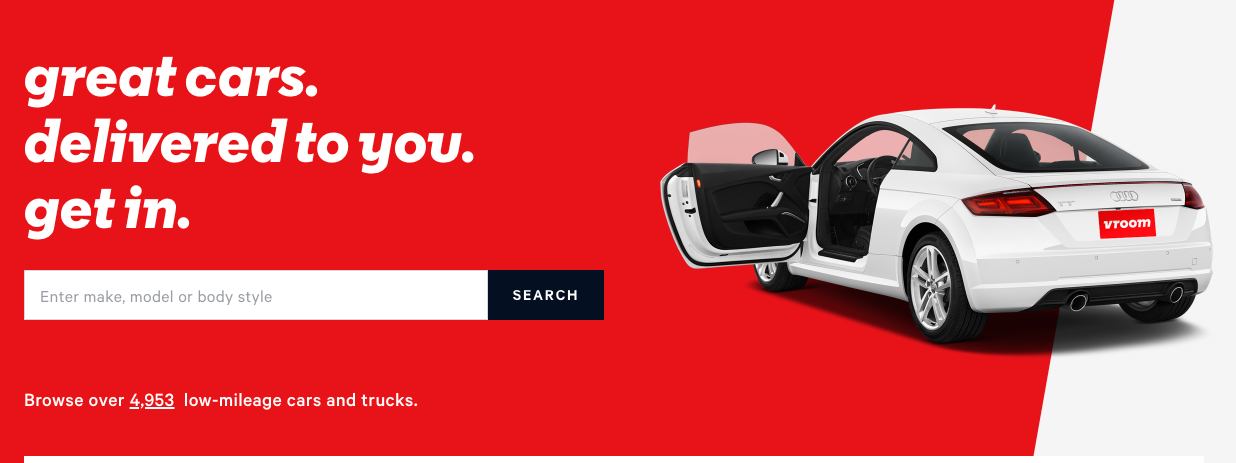
Vroom, an online service for consumers to buy and sell used vehicles, announced a $254 million round of new funding, led by Durable Capital Partners, bringing its total amount raised to $721 million. The latest funding round comes a year after the company had already raised $146 million.
“Given the progress we’re seeing, we’ve been enthusiastically investing in our business and scaling our platform,” said Vroom CEO Paul Hennessy, in an interview with me, though he wouldn’t disclose financials, only to say that the company is seeing triple-digit growth in the number of cars shipped annually. Vroom will use the funds to invest in technology, data engineers, designers and product managers to enhance its logistics plus e-commerce transactional funnel.
Despite technology helping to consolidate fragmented markets across multiple industries, the used-car industry remains highly distributed, Hennessy said, explaining that the largest shareholder in this space has less than 2 percent of the market share and the next 100 have 7 percent market share.
“We’re going after this large $800 billion fragmented market that is owned by no one,” he said.
When asked why the industry has stayed fragmented for so long, Hennessy said it was an “entrenched dealership” model for higher-priced items that originally prohibited easy entry. Additionally disruption had to come from people with e-commerce and automotive skillsets combined so that together they could disrupt the industry.
On top of the skillsets to disrupt the auto industry that have arisen in the last decade, financiers are also enthusiastic about the space. VC investments in auto-tech startups, including ride-sharing, autonomous vehicles and trucking companies, rose nearly 250 percent in the first six months of this year to $501 million.
The other macro trend that Vroom is capitalizing on is the “on-demand” mindset that’s been cultivated since Amazon started delivering books to doorsteps nearly 25 years ago.
“Everything is moving to on-demand and right to your door,” he said. “We take everything a consumer can do in a dealership but let them do that from the comfort of their own home, and then have a car delivered right to their driveway.”
It is the demand for this type of convenience and the increased trust in online services that’s allowed online car buying to happen, despite the obvious concerns.
“When I came into the industry, I thought that buying a car without test driving would be tall order for customers,” Hennessy said. “What we found is that by building a great user interface so customers can inspect the car combined with Vroom’s return policy, which allows customers to test-drive the car for seven days and for 250 miles, is a far superior experience than the current one.”
Which begs the question: how many cars are returned? Hennessy says that the number of unit returns is in the low single digits, and that a quarter of those returned are exchanged for another vehicle.
Vroom allows consumers to trade in their cars as well. The experience sounds as desirable as the car-buying experience. Consumers fill out a form and receive a quote and Vroom picks up the car and pays a check without even seeing the car first, according to Hennessy. Additionally, because of the volume that Vroom handles, the company can pay at least $1,000 to $1500 more for the used car than a traditional dealership, which has fewer cars to buy and sell, therefore is reliant on a greater margin to operate. This works to benefit the consumer buying a vehicle as well. Due to the volume of cars — Vroom has 5,000 available for sale — consumers can most likely get a better deal at Vroom since Vroom doesn’t have to price up its cars as much as a typical dealership.
Finally, when I asked what happens to Vroom in a world that’s moving toward no-car neighborhoods, Hennessy pointed to the 40 million used cars sold annually and the 281 million people registered with cars. As he sees it: “Small changes in the market will have little effect on Vroom.”


















